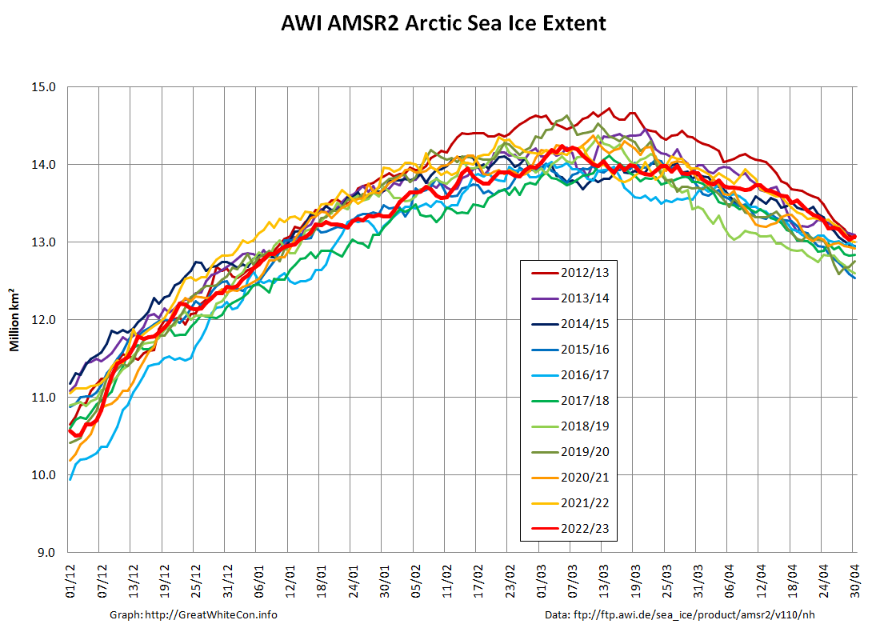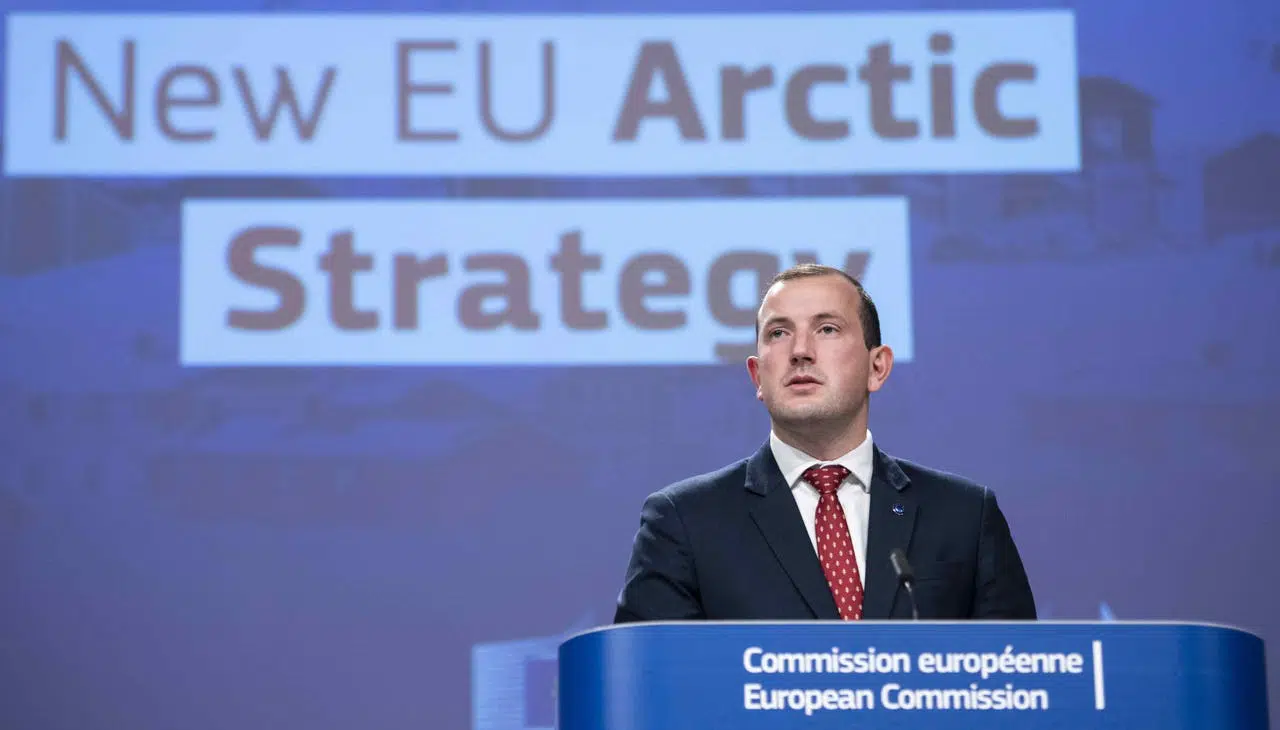Scientists discover anti-plastic microbes in the Alps and Arctic
Finding, cultivating, and bioengineering organisms that can digest plastic not only aids in the removal of pollution, but is now also big business. Several microorganisms that can do this have already been found, but when their enzymes that make this…
Thawing permafrost in the Arctic could unlock toxic waste
With rising global temperatures, thawing permafrost is likely to destabilise thousands of industrial sites and linked contaminated areas in the Arctic, which could result in the spread of toxic substances across the region, according to a new study. Nearly 2,100…
Facts About the Arctic in May 2023
At the beginning of May AWI’s high resolution AMSR2 extent metric is at the top of the historical range.
A slow start to the Arctic spring
The rate of sea ice loss for April 2023 was slow, owing to cool conditions across the ice-covered Arctic Ocean and below-average to near-average temperatures near the ice edge.
The EU in the Arctic
In light of growing global geopolitical turmoil, this article will discuss the rise of tensions in the Arctic and the EU’s Arctic interests.
Analysis: Fears mount for the Arctic
For nearly three decades, the Arctic Council has been a successful example of post-Cold War cooperation.
The End of Arctic Illusions
While the Northern European Arctic states—Norway, Sweden, and Finland—have been eager to cooperate with Russia in the Arctic in good faith, Russia has used the narrative of “Arctic exceptionalism” and framing the region as a zone of low tensions as a screen for its military build-up.






